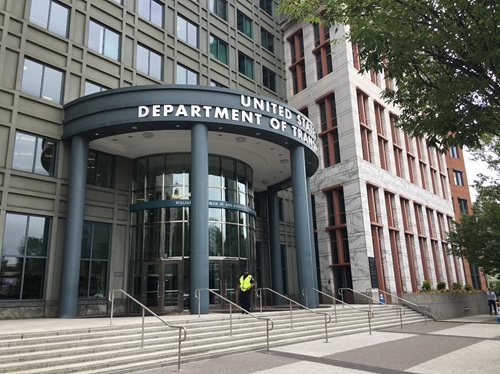The Federal Highway Administration issued $11.2 million in grants from the Fiscal Year 2019 Disadvantaged Business Enterprise/Supportive Services (DBE/SS) program to help eligible operations compete for federal highway contracts in 47 states, as well as the District of Columbia, and Puerto Rico.
[Above photo by the Ohio DOT.]
The agency noted that DBEs are defined as for-profit, small businesses owned by minorities, women, or other “socially and economically disadvantaged individuals” or, in the case of a corporation, one in which 51 percent of the stock is owned by one or more such individuals.
The daily business operations must be controlled by at least one of the socially and economically disadvantaged owners, the agency noted.

“Grants like these help small business owners create jobs while keeping costs low, which is a powerful way to help strengthen the American economy,” noted Nicole Nason, FHWA administrator, in a statement.
FHWA added that it has promoted the participation of DBEs in federal-aid highway contracts through state-managed programs since 1982 and that DBE/SS grants are an ongoing effort by the agency to help state departments of transportation train certified DBE firms on a wide array of business management practices, including procurement assistance and guidance on obtaining bonding.
Several state DOTs are currently streamlining and enhancing their DBE programs to grow more such businesses in the transportation sector.

The Delaware Department of Transportation recently noted that its new Small Commercial Entrance process will save time and costs for eligible small businesses by utilizing an approved entrance plan template that will not require the business to pay for a private entrance design to be submitted to DelDOT for review and approval. The agency emphasized that new process will be on a 15-day review cycle to help small businesses move forward with their plans as quickly as possible.
Overall, the Delaware DOT said roughly 30 percent of small commercial entrance plans submitted in 2019 would qualify for this new review process from utilizing an approved entrance plan template.
Other recently-enacted DBE-related changes by the agency include the creation of the Transportation Infrastructure Investment Fund, shortening development plan review time to a maximum of 31 days, and expediting small business and redevelopment plans with a goal of granting approval within three weeks of submission.

“Promoting economic development and securing jobs is more important than ever and this is another effort to do just that,” noted Jennifer Cohan, Delaware’s transportation secretary, in a statement.
“I’m proud of the ongoing work by our Division of Planning to take a comprehensive look at how we move proposals through our process and finding innovative ways to be more efficient, time sensitive, and responsive,” she added.
Meanwhile, the Washington State Department of Transportation proposed new overall goals for DBE participation for all of its federally funded transportation projects in June – noting in a statement that the purpose of the new goals is to create a more “level playing field” for DBE firms.
 Top Stories
Top Stories
USDOT Issues $1B in Local Road Safety Funding
January 2, 2026 Top Stories
Top Stories

